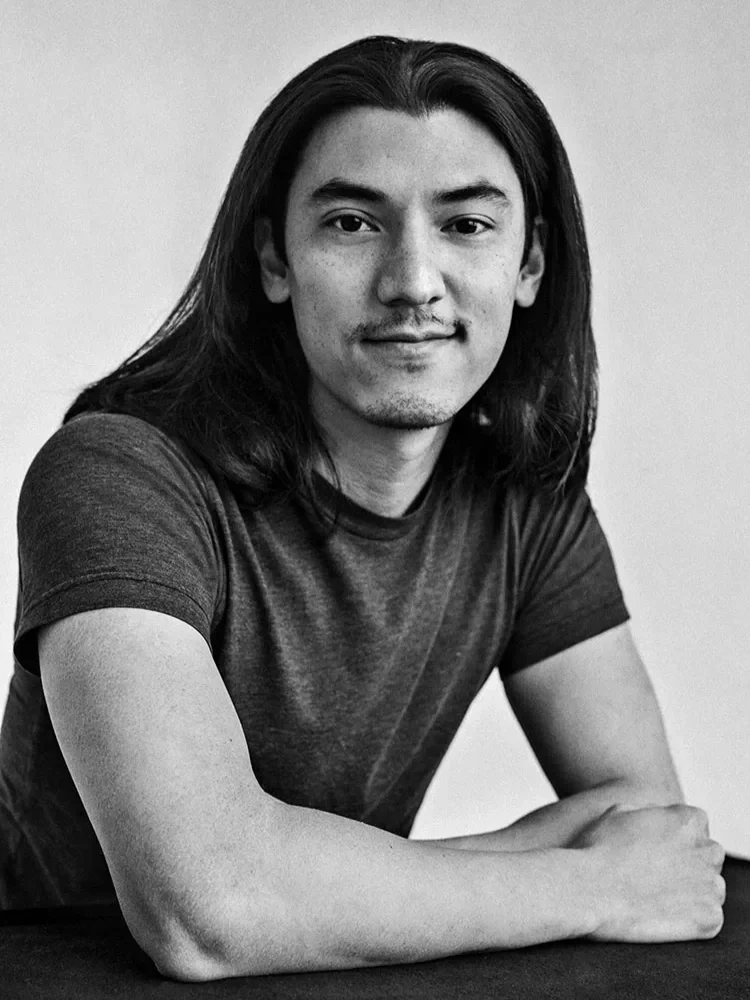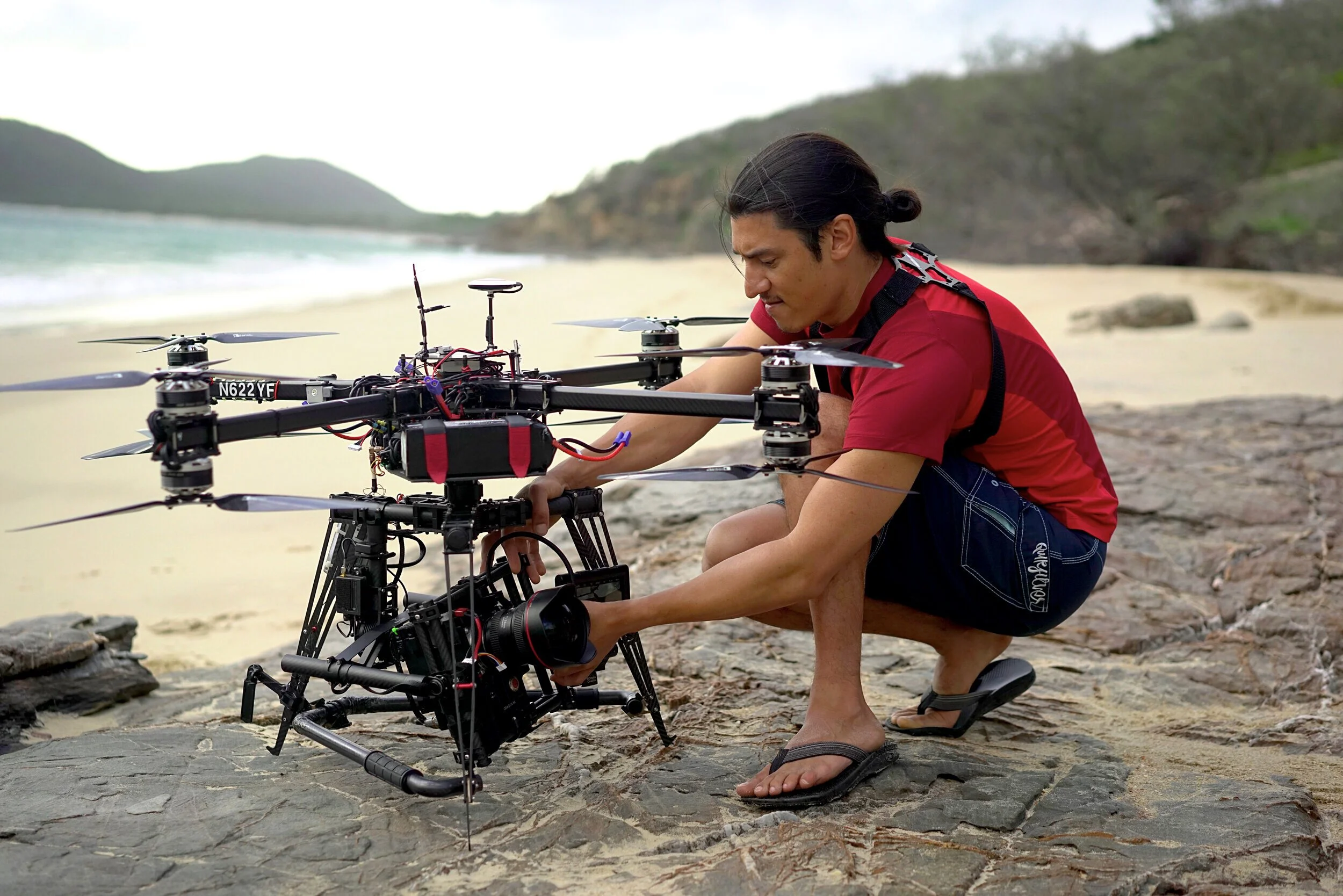Since 1930, Camp Rising Sun has shaped the lives of more than 6,500 alumni from over 60 countries. Across generations and continents, CRS alumni continue to lead with empathy, curiosity, and courage—bringing Camp’s values into classrooms, courtrooms, creative industries, clinics, and communities.
As we celebrate 95 years of impact, we’re spotlighting just a few of the many stories that show how a summer at Camp becomes a lifetime of meaning.
Please visit lajf.org/crs95 to learn more about our 95th Anniversary Celebration from October 24-26.
Jeff Orlowski-Yang (CRS ‘99-’00)
American filmmaker Jeff Orlowski-Yang produced the Emmy Award-winning documentaries Chasing Ice and Chasing Coral – both focusing on the environmental impacts from climate change. He later directed The Social Dilemma about the negative effects of social media. His production company – Exposure Labs – continues to develop projects that explore critical challenges facing our environment and social structures.
Thinking back to my two summers at Camp Rising Sun beginning in 1999, it’s pretty amazing that one activity alone was a foundational experience – being in the dark (a darkroom, that is), developing photographs. It was in the back corner room of the stage at the old boys camp, and for those first two summers I was doing a lot of black and white photography, just as I was in high school.
It was such a humble beginning for my career, but it propelled my curiosity through time to eventually pursue film and cinematography. Of course, the darkroom was kind of a personal space to reveal the images I had been capturing.
Even more valuable, though, were the daily activities I had outside of that room. Camp was such a bustling environment of personal interactions. Like a lot of campers, I was growing up and going to high school in New York city, but that couldn’t compare with the types of relationships and conversations I had at Camp with boys from around the world.
What facilitated those conversations was often teamwork and doing projects with campers as the leaders. Back then, the parlance of Camp was “instruction” – a wide variety of presentations and studies – and “construction.” We did everything from building a stargazing tower in one of the big fields to working on the sauna and rebuilding and painting the mailbox. That hands-on work really cemented us together.
Jeff Orlowski-Yang readies a drone for a film shoot. Courtesy of Jeff Orlowski-Yang.
Beyond physical labor, there were intentional shared experiences like our Saturday night council fires and our Wednesday night informal councils, and we had an overnight vigil. At the time we didn’t use language that described these as being sacred experiences, but I felt that is what we were being introduced to – a ceremony of people coming together and honoring wisdom in a community and sharing that wisdom with each other.
And we did all that as teens — me as a 14-year-old. It was unprecedented, in my experience. One day, I would get a guitar lesson from a kid from Japan and learn how to play chess, and the next, watch two boys from Palestine and Israel sing happy birthday to each other.
One of the most memorable events was meeting Jonah Whittkamper, a Camp alumnus who came to meet and speak with us. He came in and started speaking everybody's native language, and I thought, “He must know 50 languages. Who is this guy?” He only had a handful of phrases in each language, but still, it was impressive and such a welcoming introduction for all of the young boys from around the world to hear a little bit of their own tongue.
Jonah was working on a lot of youth activism with the Global Youth Action Network at the time. Just meeting him and seeing his lens on the world inspired me massively to try to use my life and my time to make a positive impact and to make change.
I also felt that it wasn’t just me who was impacted. I could tell from the camaraderie I had with other campers that they were similarly inspired. We watched Dead Poets Society together and that really forged a bond — boys becoming young men under the mantra of carpe diem! That became our mantra too, my fellow campers shouting it out daily put me on this larger-than-life path, instilling in us that we could make our lives extraordinary if we chose to. That was a huge inflection point for me, recognizing that I am the author of my own life; I am responsible for my decisions and actions, and I have the autonomy over the types of experiences that I'll get to have in this life. That shared philosophy with those boys was meaningful, deep, and influential.
The experience also allowed me to expand my boundaries as I moved forward in life. What started as an anthropology degree at Stanford University led to a fortuitous meeting with James Balog whose Extreme Ice Survey of time lapse photography, studying the impacts of climate change, resulted in my film Chasing Ice. It was a natural fit – the desire to make change, melding with my love of photography and film.
But nothing at Stanford compared to the diversity of thought and experience and worldview that I got at Camp, because of the intentional structure. Not only does it actively bring together people from around the world, but then you have the intentionally curated structure of cultural sharing and cultural exchange. I don't know of any experiences that have brought that level of diversity of thought and lived experience together with the openness to explore together as a community.
Jeff Orlowski-Yang (left) accepting the U.S. Documentary Audience Award at the 2017 Sundance Film Festival. Photo by Punk Toad via Creative Commons.
Camp Rising Sun’s emphasis on leadership skills certainly benefitted me. I’ve had films with about 800 people in the end credits that our team worked with and who we managed. And as a director, I got to work with most of those people. One of the beautiful things that we practiced and learned at Camp was how to see the inherent merit in every person and to honor every individual experience and the different perspectives that they were bringing – how that informs the collective.
The types of films that my team and I have been working on are about stepping up and using all our voices and trying to say something collectively to the broader public. We’re trying to get these ideas out into the world through the press and through interviews and through lectures and Q&As to help the world wake up to the reality of what we're facing through environmental crises. I don't think I would've gone down that path at all if Camp had not planted some of those seeds in me for taking a thoughtful approach to making a difference in the world.
I went back in 2002 to be a counselor to try to impart some of what I learned and have experienced on to other people.
I’m working on five films right now. I still think that I’ll make the time to have Camp Rising Sun in my life again — to have this incredible curation of really bright, capable minds from around the world that have talent and intelligence and sensitivities coming together in a way where they're like a collective sponge wanting to learn and absorb and be better versions of themselves. There's something incredibly special about this camp that draws me back to it again and again.



